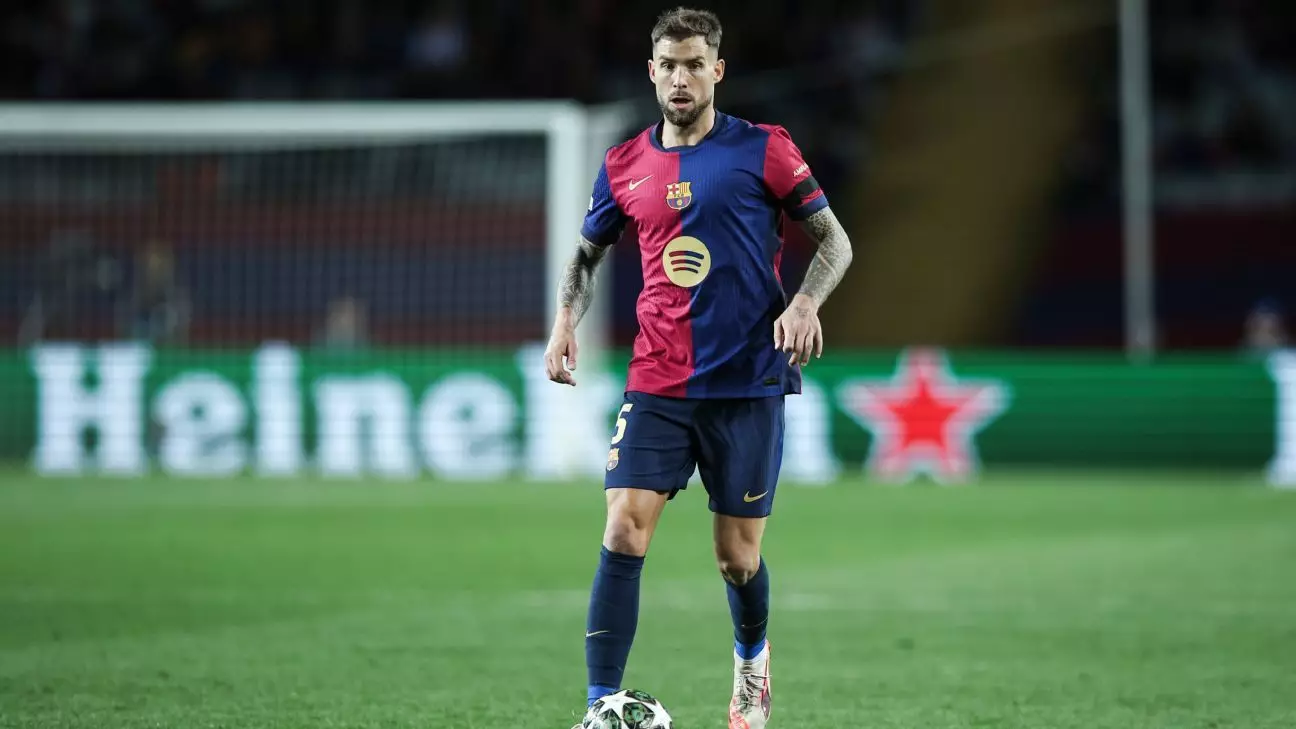The ongoing tumult in professional football often reveals the intricate dance between rules and interpretation. A significant recent instance involving Osasuna’s accusation against FC Barcelona illustrates this tension starkly. Following a relatively straightforward 3-0 victory for Barcelona over Osasuna, the controversy ignited due to the participation of defender Iñigo Martínez. Osasuna contended that his involvement breached FIFA regulations, stirring a pot of legal and ethical questions that go beyond mere football tactics to touch on the core values of the sport.
Understanding the Allegations
Osasuna’s claim hinges on a FIFA clause that restricts players called up for national duty from participating in club matches until a specified period after their withdrawal from international duty. In Martínez’s case, the allegations assert that his selection came too soon after he had opted out of representing Spain due to a knee injury. This peculiar situation underscores an underlying issue: the gray areas that exist within the broader parameters of established regulations. Such moments evoke a critical examination of a club’s adherence to the ethics of football, particularly when accusations flow from a competitor who feels wronged.
The Spanish Football Federation (RFEF) ultimately dismissed Osasuna’s appeal, determining that Martínez’s withdrawal had been executed in compliance with protocol. For Osasuna, this ruling was an unexpected setback. The governing body’s position highlights the need for better clarity regarding injuries and player availability—a recurring theme that stirs debates in professional sports today.
Implications of the Ruling
The RFEF’s decision not only affects the immediate aftermath of the match but also reverberates through the broader landscape of LaLiga and beyond. Osasuna, currently positioned precariously standing seven points above the relegation zone, saw their hopes dashed further with the ruling. A reversal could have meant a significant shift in points—potentially altering the club’s fate for the season. The gravity of these rulings often cannot be understated; they can bolster or cripple a club’s standing, influencing everything from relegation battles to European qualification.
Barcelona coach Hansi Flick took the opportunity to praise Martínez, alluding to his exemplary performance and overall contributions during Barcelona’s campaign. Flick’s comments beckon a deeper appreciation for the emotional dynamics that define teams, wherein leadership and resilience become intrinsic parts of a season’s narrative. Martínez stands not just as a player but also as a symbol of the technical and psychological dimensions of football, contributing not just on the pitch but inspiring those around him as well.
Adequacy of Current Regulations
One of the most pressing conversations stemming from this case is the adequacy of current regulations regarding player eligibility. As FIFA’s frameworks encounter unique scenarios and interpretations, it becomes increasingly evident that the sporting world must engage in a reevaluation of its governing statutes. Should the existing rules endure, or do circumstances merit a fresh dialogue around them? The debate draws attention to a significant dilemma every sport faces: balancing competitive integrity with the fluid realities of player health and club standings.
As we scrutinize these regulations, one begins to wonder where the fine line lies between enforcing fair play and allowing for factors beyond a club’s control. Similarly, the interplay between club management, national duty, and player health poses questions that challenge even the astutest administrators. Football, in its essence, thrives on resolve and strategy; however, these scenarios prompt a vision for a future that both upholds the sanctity of global competitions and acknowledges the human aspect of the sport.
Looking Ahead
Moving forward, the interplay between clubs like Barcelona and Osasuna will be a crucial factor in how these disputes are navigated. The retraction of Osasuna’s initial claim serves as a cautionary tale for clubs and governing bodies alike, instigating questions of scrutiny in every match—a perpetual quest for clarity and justice in the fascinating realm of football jurisprudence. As Barcelona hunts for their stronghold atop LaLiga amidst the shadows of controversy, one remains optimistic that the league’s foundation rests on principles that transcend mere competition, focusing instead on integrity, respect, and the luminous beauty of the game.

